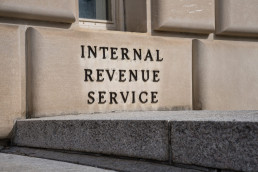I Received a CP1058 Letter. What Should I Do Next?
Receiving an unexpected letter from the IRS can be stressful, especially when it involves serious action. The CP1058 is one such notice that requires your immediate attention. If you’ve received this letter, it’s crucial to understand its purpose, the potential implications, and how to address it effectively.
What Is a CP1058 Letter?
The CP1058, also known as the Final Notice of Intent to Levy and Your Right to a Hearing, is issued by the IRS when they plan to levy your property to collect unpaid taxes. This letter indicates that previous attempts to resolve the debt have not been successful, and the IRS is now taking steps to secure payment through more aggressive means, such as:
- Garnishing wages
- Seizing bank accounts
- Placing liens on property
The notice also informs you of your right to request a Collection Due Process (CDP) hearing within 30 days of the date on the letter.
Why Did You Receive a CP1058 Letter?
The IRS issues a CP1058 when you owe back taxes and have not taken action to resolve the debt despite prior notices. Common reasons include:
- Unpaid Tax Balances: Taxes from previous years remain unpaid.
- Ignored IRS Notices: Previous communications about the balance were not addressed.
- Missed Payment Plans: Defaulting on an agreed-upon installment plan.
This letter signals that the IRS is prepared to use all available means to collect the owed amount unless action is taken promptly.
Steps to Take If You Receive a CP1058
- Do Not Ignore the Letter: This is a final warning from the IRS. Ignoring it could lead to serious financial consequences.
- Review the Notice Carefully: Understand the details, including the amount owed, the deadline to respond, and your right to a hearing.
- Request a Collection Due Process Hearing: If you disagree with the IRS’s actions or need time to resolve the debt, filing for a CDP hearing within 30 days is essential. This can temporarily halt the levy process.
- Evaluate Your Options: Depending on your situation, you may:
- Pay the amount in full, if possible.
- Negotiate an Installment Agreement to pay in smaller amounts over time.
- Explore an Offer in Compromise to settle the debt for less than what you owe.
- Request a Currently Not Collectible status if you cannot pay at all.
- Seek Professional Help: The IRS collection process is complex, and responding incorrectly can worsen your situation.
Why Professional Assistance Matters
A CP1058 letter represents one of the IRS’s most serious collection actions. Navigating the response process requires a solid understanding of tax law and IRS procedures. A tax resolution expert can:
- Evaluate your financial situation and recommend the best course of action.
- Represent you in communications with the IRS, including during a CDP hearing.
- Help negotiate terms to reduce or eliminate the stress of the debt.
At Accelerated Tax Relief, we specialize in helping taxpayers resolve issues like the CP1058 notice. Our team understands the urgency and complexity of these situations and is here to guide you through every step.
Don’t wait until it’s too late. If you’ve received a CP1058 letter, call us today at (630) 428-3015. Let us help you take control of your tax situation and work toward a resolution that protects your financial future.
I’m Facing an IRS Audit. What Should I Do?
Few things cause more anxiety for taxpayers than an IRS audit. While it’s natural to feel concerned, understanding the process and preparing appropriately can make all the difference. If you’ve received a notice, here’s what you need to know to handle the situation with confidence.
Why Does the IRS Audit Taxpayers?
An audit is essentially the IRS’s way of double-checking your tax return for accuracy. While some audits are triggered by discrepancies or unusual claims, others are simply random. Common reasons include reporting errors, high-value deductions, or discrepancies between your return and information reported by third parties, such as employers or banks.
Types of Audits
Audits can vary widely in complexity. A correspondence audit may involve nothing more than submitting documentation by mail, while a field audit might require an in-person review of your financial records.
Understanding the type of audit you’re facing is the first step in addressing it effectively.
How to Respond
When you receive an audit notice, start by reading it carefully. The notice will explain why your return is being reviewed and what the IRS is requesting. From there:
- Gather Documentation: Collect all relevant records, including receipts, bank statements, and prior returns.
- Stay Organized: Present your information in a clear and concise manner to avoid delays or confusion.
- Respond on Time: Delaying your response can lead to penalties or escalation of the audit process.
Do You Need Professional Help?
While some audits can be resolved with straightforward responses, others require in-depth knowledge of tax law. Working with a tax resolution expert can relieve much of the stress and uncertainty. A professional can analyze your case, represent you in communications with the IRS, and work to minimize penalties or additional tax liabilities.
Preventing Future Audits
While not all audits can be avoided, maintaining accurate records and double-checking your return for errors can reduce your chances of being flagged. Filing on time and ensuring consistency between your return and third-party records is also essential.
Facing an Audit? We Can Help
An IRS audit doesn’t have to be overwhelming. At Accelerated Tax Relief, we help taxpayers navigate the audit process with confidence. Whether you’re facing a correspondence audit or something more complex, we’re here to guide you every step of the way.
Call us today at (630) 428-3015 to schedule a consultation. Let us help you resolve your audit efficiently and protect your financial future.





